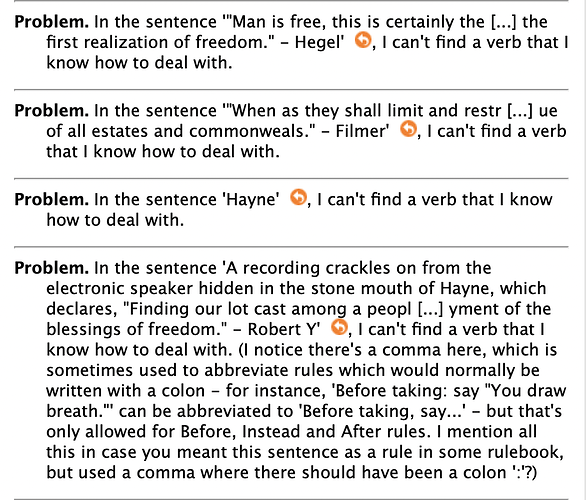I’m trying to write an educational game that uses a lot of quotes from historical figures which seems to generate so many errors when I go to translate it. The errors that it flags involve ‘past tense’ verses ‘present tense’, also grammar, etc. A lot of these historical sources use grammar and tenses very different from how we talk today. Is there a way to disable the errors and just let the text be what it is?
Can you provide an example of a quote, how you’re trying to “translate” it, and what error you’re receiving?
See attached screen shot.
In addition, there’s quite a bit of my own narrative for the game that results in similar flagging.
Thank you so much for trying to help,
Tim
Ah, OK, it looks like the compiler thinks these quotes are code, and is attempting to parse them accordingly. Are each of these quotes embedded in Say commands, or otherwise enclosed in statements that Inform should know what to do with? If you paste in some examples, folks should be able to help you out – since these are quotes, I’m guessing nested quotation marks might be messing things up.
(The Writing with Inform section on punctuation might also be helpful to look at).
So if I’m using quotes I need to use a different symbol to connote that they are quotes? for example “ or ‘
Pretty much – you need to tell Inform that the text you’re writing is something it should display, which is what the Say command does. Anything after Say in double-quotes will get printed. So inside those double-quotes, you have to use apostrophes instead of double-quotes (and [apostrophe] instead of ’ in case you want to use one of those). So this line should work properly:
Say "'Friends, Romans, countrymen, lend me your ears.' -- Mark Antony[apostrophe]s most famous line."
Got it! Thank you much
